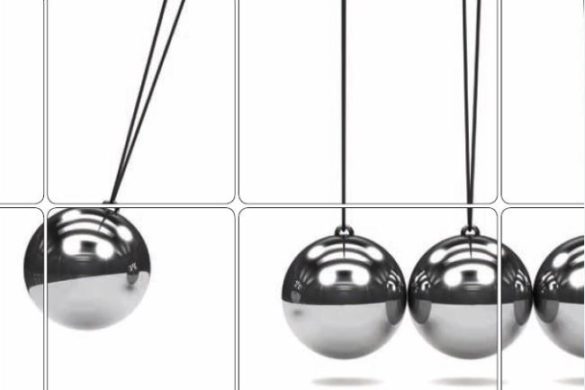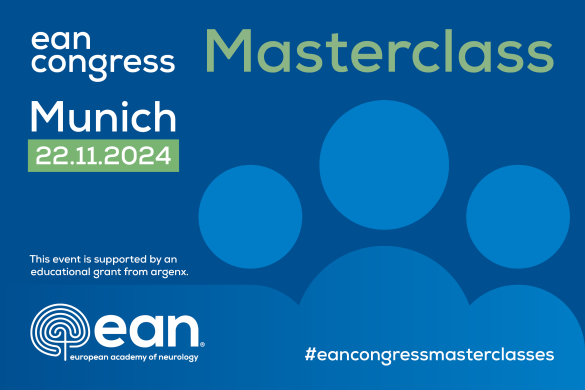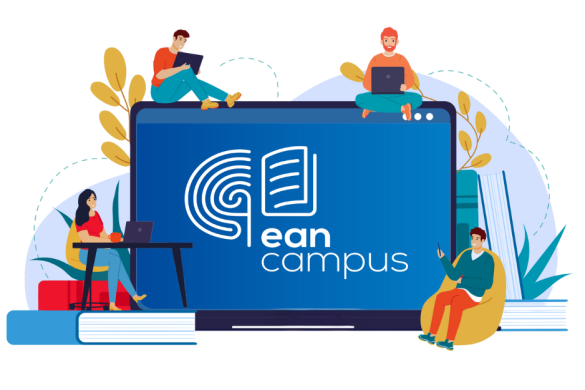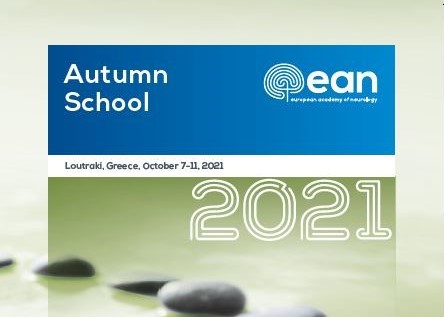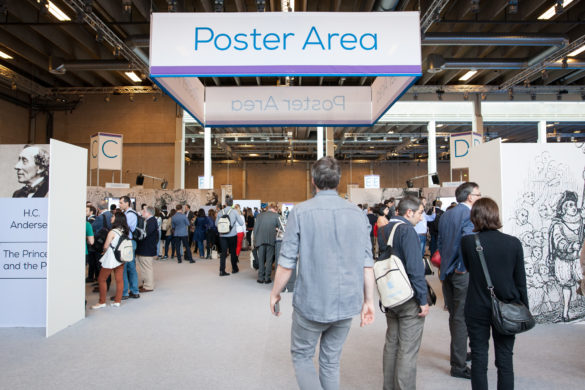Report from Anna Damulina from Russia visiting the Department of Neurology in the Medical University of Graz, Austria under the supervision of Professor Franz Fazekas
I took part in Department-to-Department programme from 18.05.2015 until 26.05.2015 at the Department of Neurology in the Medical University of Graz.
By visiting the Medical University of Graz, I gained new insights into neurology. My first two weeks I spent in the General Neurology and Neurogeriatry units. I saw a lot of patients with different neurological diseases: patients after stroke, with tumors, demyelinated, inflammatory, genetic, and extrapyramidal diseases of central nervous system. Every day I watched the doctor’s rounds and discussing of all patients in the units. For me it was very beneficial to see the variation in practice between different health care systems.
I spent one week watching the work of neuropsychologists. It was very interesting for me, because I’m interested in neuropsychology. I could compare neuropsychological testing techniques between my country and Austria. The neuropsychologists showed me special aspects of examination of post-stroke patients and patients with Alzheimer’s disease. They all were very kind to me and answered all my questions.
The week after, I was at the Stroke unit. I observed the algorithm of examination in patients with stroke of unknown genesis, and learned aspects of anticoagulation therapy in these patients. A very useful and interesting time for me was my staying at the MRI department, because the Medical University of Graz is well known for his neuroimaging research. For the first time in my medical practice I saw a positron emission tomography, and doctors explained to me the details of studying patients with different types of dementia. A few days I spent in the MRI Emergency department and observed the neuroimaging examination of patients with acute neurology symptoms.
I also was in the laboratory at the neurology department. The head of the laboratory showed me the methodology of analysis of cerebrospinal fluid and different features of neurological diseases in cerebrospinal fluid. For me, it was especially useful to learn how to distinguish the cerebrospinal fluid of patients with different brain tumors.
During my time in Graz, I developed a keen interest in both the clinical and research aspects of neurology. I have already used the skills and experience that I developed from the trip to improve the patient care that is delivered in our center. This was a great opportunity to gain scientific experience.
I’m very grateful to all doctors at the Medical University of Graz, especially to Professor Fazekas, for making me feel so welcome and for their willingness to educate me and share their experiences. Also I want to thank Professor Fazekas’ secretary Michaela Schweiger, who was very kind to me and helped me with all my questions.
After my stay at the Medical University of Graz, I improved my knowledge in different areas of neurology and want to thank the EAN sincerely for this great possibility.
****************************************
Report from Kateryna Antonenko from Ukraine visiting the Stroke Unit & Division of Cardiovascular Medicine at the University of Perugia, Italy under the supervision of Professor Valeria Caso
I spent six unforgettable weeks in the Stroke Unit of the Univerity Hospital of Perugia, Italy, under the supervision of Prof Valeria Caso. This visit was very fruitful for me in clinical and scientific aspects. Every morning I had the opportunity to take part in the daily rounds, reviewing together with my mentor and her colleagues every clinical case in details. After the round we discussed altogether the treatment and results of additional examinations. For me it was very interesting to compare Ukrainian and Italian Medical systems for the benefit of the patient. During my stay I had the opportunity to see a route sequence of patients with acute stroke, which was performed intravenous and/or intraarterial trombolysis. Every doctor in the stroke Unit is able to perform ultrasound examination of the cerebrovascular blood vessels and legs vessels. During my practice I also had possibility to study the basis of ultrasound examination and I hope to continue the study of these methods in Ukraine. I observed the performance of an ultrasound examination for revealing of patent foramen ovale with the injection of ‘bubble contrast’ into a peripheral vein combined with procedures to increase pressure in the right atrium. I think that this experience will let me diagnose more precisely the cause of stroke in young patients.
Concerning the scientific part of my stay in Perugia, under supervision of Prof Valeria Caso and Dr Maurizio Paciaroni, I collected and analysed data of patients with ischaemic stroke and atrial fibrillation. The results of this scientific work were presented in the abstract, which was sent to the International Stroke Conference, and in article which, I hope, will be published in one of the European Neurological journals.
I would like to point out the nice attitude of all the doctors, nurses and other medical staff to me. If I needed any explanation or device they could find time for it. They helped me to understand peculiarities of their medical system and were interested in the medical services of my native land.
Ukraine is a developing country. The EAN Department-to-Department Programme gave me the opportunity to review the approaches of examining patients with stroke, choosing the best treatment. The wide implementation of instrumental diagnostic, laboratory findings, and rehabilitation medicine will help me achieve better results in the better diagnosis of lesion, functional self-service of the patients and, I hope, it will improve their quality of life.
I would like to thank the EAN for this brilliant opportunity to improve my knowledge, especially Magda Dohnalova, who helped me with all organisational questions. And also I want to thank Prof Valeria Caso and her colleagues for cordial welcome, attention and concern.
****************************************
Report from Sopio Sopromadze from Georgia visiting the UCL Institute of Neurology and Neurosurgery in London, UK under the supervision of Professor Kailash Bhatia.
With the support of the EAN Department-Department programme, I spent 6 weeks at the Institute of Neurology and Neurosurgery, Queen Square, London,UK. During my stay in London, I was supervised by Professor Kailash Bhatia.
My main interest were movement disorders. I had the great possibility to observe Professors Bhatia’s work at the Movement Disorders Outpatient Clinic. My special interest was in Parkinso’sn disease, atypical parkinsonism, tremor, tics, Chorea, Myoclonus, psychogenetic movement disorders, their clinical aspects, genotype-phenotype correlations, pathphysiological studies, and differential diagnosis and treatments. I also had the possibility to attend ward rounds, gower rounds, movement disorders video sessions, and the Botox Clinic. I would like to mention that Botox injections are not available in my country and it was a great opportunity for me.
I would very much like to thank Professor Bhatia once again for his excellent supervision and very pleasant company. I hugely enjoyed my fellowship days at Queen Square under his leadership. It was a pleasure to meet with him and to learn more about movement disorders from the professional that he is. I was fascinated by his knowledge and his charismatic teaching. He taught me how to think and judge properly to find clues of correct diagnosis. I am really grateful to the EAN for this great opportunity to spend 6 weeks in such a prestigious hospital.
****************************************
Report from Nataliya Titova from Russia visiting the Department of Neurology at the Bispebjerg Hospital in Copenhagen, Denmark under the supervision of Professor Lise Korbo
I want to thank the EAN for this tremendous opportunity to improve my neurology knowledge and skills. Thank you that my application was approved to visit Bispebjerg Hospital in Copenhagen. I spent 6 weeks at the neurological department: 3 weeks in May (4/05/15-24/05/15) and 3 weeks in August/September (17/08/15-06/09/15).
I am very interested in invasive techniques in the treatment of advanced Parkinson’s disease that implement a strategy of continuous dopaminergic stimulation. I was introduced into the treatment with apomorphine, Duodopa and deep brain stimulation. I talked to DBS-, apomorfine- and Duodopa-specialists who showed me how to adjust the treatment, how to cope with adverse reactions and complications of these treatment strategies. I spent a lot of time with DBS-nurse who showed me the programming of neurostimulators in patients with a DBS system and currently I know the main principals of this type of treatment. For me it was very interesting to visit the DBS operation and to follow the patients in the postoperative period. Now I have a deeper knowledge of advanced Parkinson’s disease, which is very important for me, because in 2 months my department in Moscow will start to participate in the first preregistrational clinical trial of apomorphine and it is going to be a Duodopa centre as Duodopa was registered last month in Russia.
I visited the out-patient clinic and followed many doctors. Each of my days was devoted to a definite nosology (Parkinson’s disease – early stages or advanced stages, dystonia, tics including Tourette’s syndrome, atypical parkinsonism – multiple system atrophy, progressive supranuclear palsy, cortical-basal degeneration, Lewi body dementia). And I learned a lot about motoneuron diseases because I had a chance to see several patients with amyotrophic lateral sclerosis. Also I had the opportunity to examine patients with different types of spinocerebellar ataxias and discuss differential diagnosis with the doctors. Thus I learned a particular examination of patients with movement disorders, as well as approaches to the treatment and diagnosis. I’m glad I had the opportunity to spend two days in the Neuroimaging department. I saw a DAT-scan, carried out in patients with movement disorders and understood how to fuse and correlate the results of a DAT-SCAN and the clinical condition.
In addition, it was very useful to attend the morning meetings and listen to the discussion of patients. I also attended night shifts with a doctor who was responsible for thrombolysis. It was very interesting for me to analyse the protocol of trombolysis in this clinic and to compare it to the Russian system of stroke care. I was also kindly trained to provide transcranial dopplerography, which is widely used in stroke unit. Somedays I followed the doctors in the 24-hour wards and saw patients with cognitive impairment, vascular diseases of the brain, peripheral nervous system diseases, amyotrophic lateral sclerosis and others.
I consider it my good fortune that I could listen to a lecture of Professor Angello Antonini from Italy and his workshop-training with real patients with unclear diagnosis of movement disorders. I got a lot of information. I believe that my practice for 6 weeks in Copenhagen was very useful. Steven Haugbol created a very interesting and productive plan for me.
I would like to thank the Head of the department Lise Korbo for the opportunity to visit her office. And it is my great pleasure to thank all members of the neurological team of the clinic who helped me to feel very comfortable.
I’d like to thank once again the EAN for my wonderful time. I learned a lot of new things about modern neurology and I wish future D-D programme fellows to receive the same outstanding experience.




